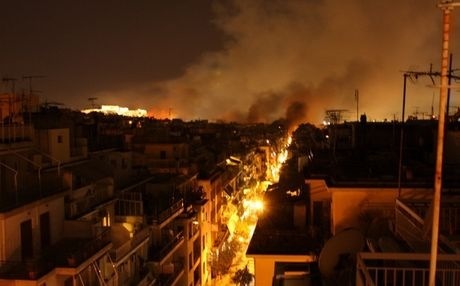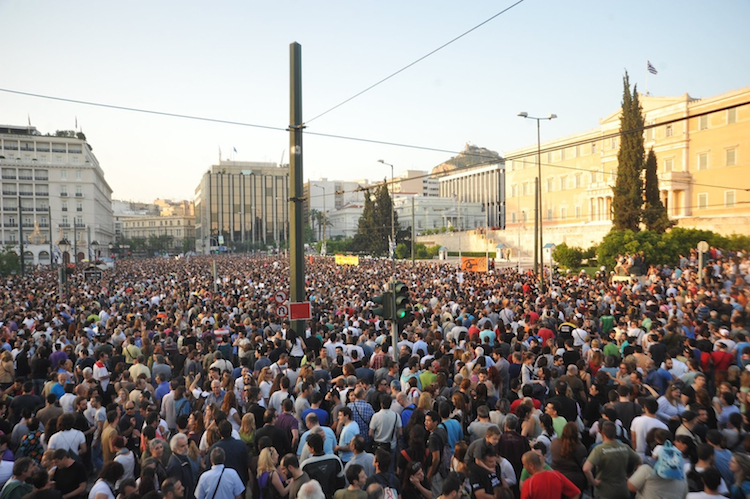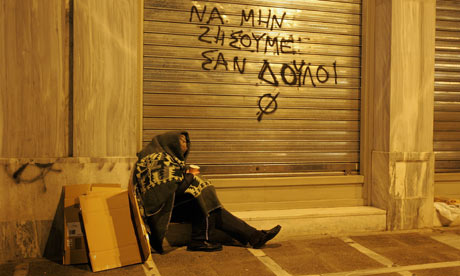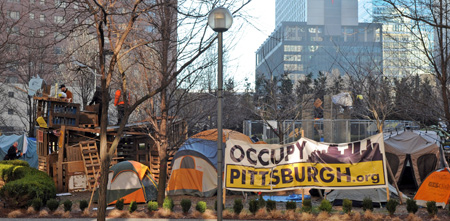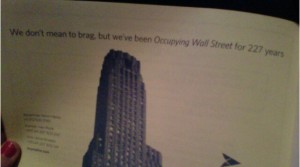The cut-up XtraNormal video says it all–the “deal” is a mess and is not going to work. The details of what ordinary Greeks can expect were revealed late yesterday:
The measures include nearly €400 million ($530 million) in cuts to already depleted pensions. Health and education spending will be reduced by more than €170 million ($225 million), subsidies to the state health care system will be cut by €500 million ($661 million), and health care spending on medicine will fall by €570 million ($754 million). And some €400 million ($529 million) will be lopped off defense spending — three quarters of which will come from purchases.
And no one expects this disaster to work:
The draft law also drastically revises the 2012 budget, changing the government deficit target to 6.7 percent of gross domestic product from an initial forecast of 5.4 percent. Even worse, plans for a modest primary surplus — which excludes debt servicing costs — have been scrapped and Greece will instead post a primary deficit of nearly €500 million ($661 million), or 0.2 percent of GDP.
If you wonder whether people might not just feel they have to accept this, here’s Ilias Iliopoulos, general secretary of the Greek civil servants’ union Adedy, not one of the more radical groups as you might expect: “I don’t rule out a popular revolt.”
Some nuggets suggest why:
- Greek bank shares are down 10% this morning.
- The “Socialist” party that brought in the crisis is running at 12% in the polls.
- Greek debt was cut from CCC to C by the Fitch agency, which equals default.
- As the New York Times speculated this morning, that would mean Credit Default Swaps start to be activated: do banks have the money to cover them? What do you think?
Unsurprisingly, what the Times does not mention is that the left is resurgent:
Left-wing parties that oppose the next round of cuts the coalition government is promising are meanwhile surging. A relatively new party, the Democratic Left, is nipping at Pasok’s heels, with 12 per cent, twice as much support as it had in December. Another, the Coalition of the Left, has 8.5 per cent support, and the communist party, KKE, has 9.5 per cent.
In the event that these parties were able to form a Popular Front against the Troika, they would win an election, as the Conservative Party that the Times claims is “heading” for an election win is polling at 19%. Even a coalition without the dogmatic Communists would win on these numbers.
The defense cuts might make us nervous about a military coup: which brought to mind Costa Gavras’s classic film Z (1969) about the repression that led to the Greek dictatorship of the colonels (1967-74). The title of the film is not explained until the very end. It is not a letter: it stands for zei (he/she/it lives).
In the context of the film, this is taken to refer to the lead character, who has been assassinated by the secret police. His identity is clearly that of the Greek politician Grigoris Lambrakis, killed in 1963. The list of those things to be banned include zei, which we might now want to read as “it lives,” that which was supposed to be long dead, interred and forgotten–the revolution.




